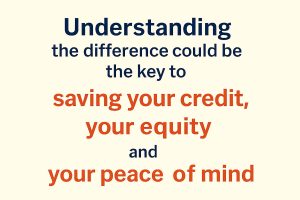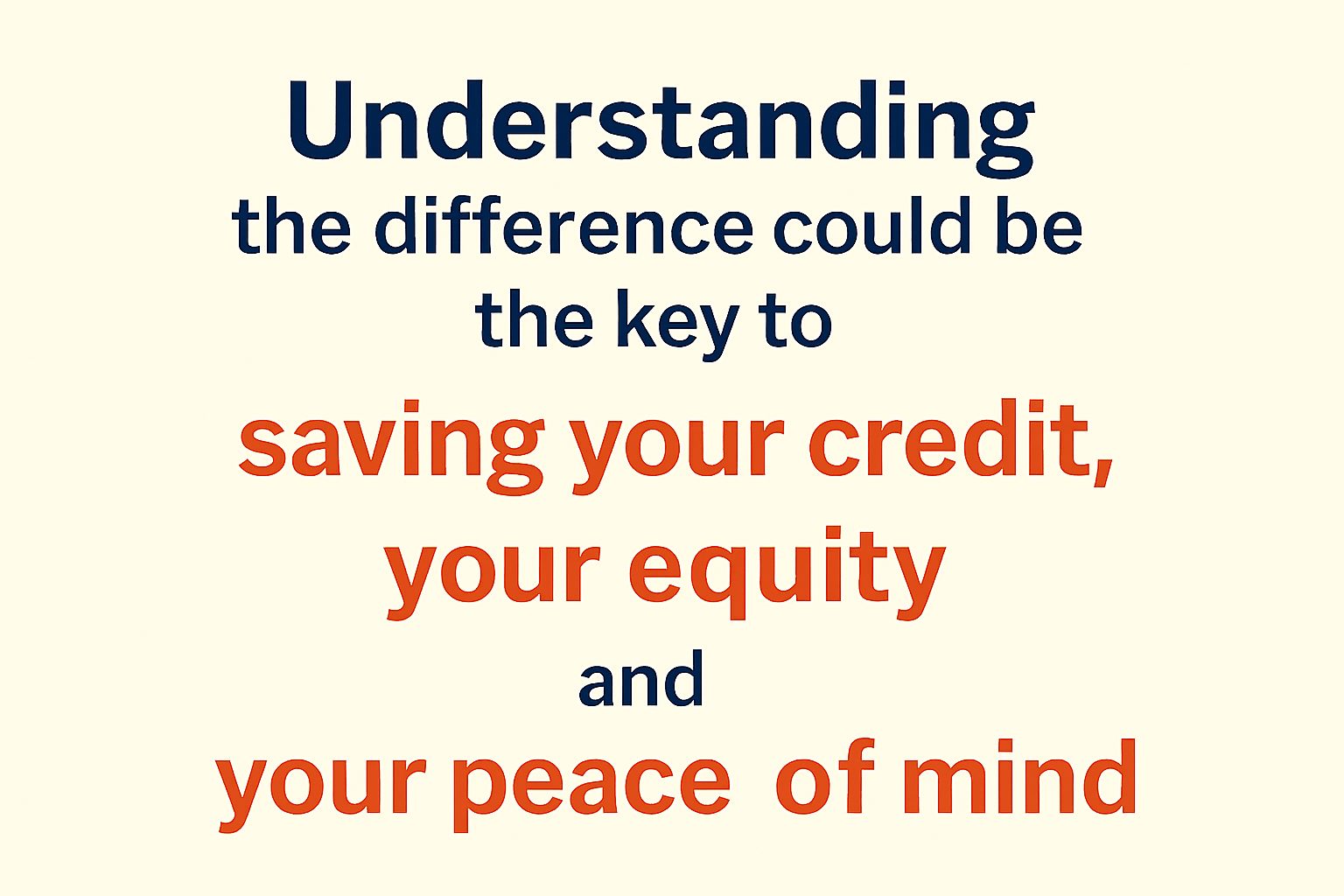If you’ve fallen behind on your mortgage—or know someone who has—you’ve probably heard the terms pre-foreclosure and foreclosure thrown around. They sound similar, but they mean very different things for homeowners.
Understanding the difference could be the key to saving your credit, your equity, and your peace of mind.

Pre-Foreclosure vs. Foreclosure
Let’s break it down in plain language.
What Is Pre-Foreclosure?
Pre-foreclosure is the warning stage. It means the homeowner has missed one or more mortgage payments, and the lender has officially started the process by sending a Notice of Default.
But here’s the good news:
👉 You still own the home.
👉 You still have options.
This is the window where you can:
- Catch up on missed payments
- Work out a loan modification
- Sell the home (often with equity!)
- Explore a short sale if you owe more than it’s worth
Think of pre-foreclosure as a second chance—but it’s time-sensitive.
What Is Foreclosure?
Foreclosure is what happens if no action is taken during pre-foreclosure. The lender moves forward with legal proceedings to take back the home and sell it at auction.
Once foreclosure is complete:
- You lose ownership of the property
- Your credit takes a major hit (often 7 years)
- You may still owe money if the sale doesn’t cover the full loan
At this point, options are limited—and the consequences are long-lasting.
Why the Difference Matters
The biggest difference between pre-foreclosure and foreclosure is control.
In pre-foreclosure, you’re still in the driver’s seat. You can make decisions that protect your finances, your credit, and your future.
In foreclosure, the lender takes the wheel—and your choices shrink dramatically.
What Should You Do If You’re in Pre-Foreclosure?
- Don’t ignore the mail. Open every letter from your lender.
- Call your lender. Ask about hardship programs or repayment plans.
- Know your equity. You may be able to sell and walk away with cash.
- Talk to a real estate professional. Someone who understands distressed sales can help you navigate your options.
Need Help Navigating Pre-Foreclosure?
If you’re in Prince George’s County or nearby, I specialize in helping homeowners explore their options before it’s too late. Whether you want to stay in your home or sell it on your terms, I’m here to help—no pressure, just honest guidance.
Remember: Pre-foreclosure is not the end. It’s a wake-up call—and a chance to take back control.
Contact me TODAY!

 Facebook
Facebook
 X
X
 Pinterest
Pinterest
 Copy Link
Copy Link
